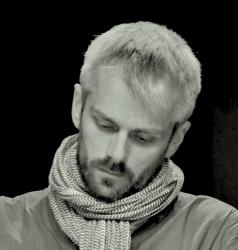Debates on Monday #4
My field of vision must be limited and my perspective biased because it seems that the most prevalent topic of debate last week was religion. Christianity, that is.
Iceland is one of the few remaining countries in Europe with a State religion. The Lutheran-Evangelical National Church of Iceland has traditionally been granted some access to State-run media as well as the compulsary school system. The State-owned and publicly funded radio RÚV has broadcast mass every Sunday, as well as a few minutes of Christian prayer twice a day. As more and more people resign their State Church membership, such privileges have in recent years become contested.
There was some uproar recently, when new program managers at RÚV announced a schedule without the traditional morning- and evening prayers. A compromise saw the morning prayer reappear, but the evening prayer replaced by some sort of open mic for contemplations on life, its meaning and morals from a wider perspective.
Church leaders seem to stay wary. When Illugi Jökulsson, for decades already a popular public intellectual, used his otherwise unrelated radio program, Free Hands, to examine some biblical verses and their historical background, theology Professor Pétur Pétursson posted an article-length status on Facebook.
Pétur claims that Illugi employs 17th-century hermeneutics to put forward ‘the most negative possible image of Christendom and Jewry’. He further states that: ‘Not so long ago, the Icelandic nation had the opportunity to express itself about the status of the national Church a propos the constitution. It turned out that its majority wanted there to remain a clause about a national church. Most people, including myself, interpret this as the Nation’s demand that the clause be left untouched, i.e. that the State support and defend the National Church and what it stands for. It would not be out of order for the State radio, which supposedly follows the State in these matters, to make sure that biblical texts are chosen in some accordance with traditions and academic methods, seeing as the State runs a whole department within the University of Iceland where these texts are examined and interpreted based on critical modern Bible research, along the same lines as in literary studies and history.’ Pétur further wrote that he had ‘had it up to here with Illugi’s deceitful derision towards the Christian faith, the holy scriptures of the Christian Church and Jewry.’
Illugi answered back, also on Facebook, saying he hopes that Pétur will realize that his demands amount to religious censorship. Illugi says that drawing attention to the ‘strange, obscure and (sometimes) objectionable passages in the Bible’ was the explicitly declared intention of his program, adding that these are precisely part of what makes ‘the Bible so fascinating, with all its incredible contradictions’. He adviced Pétur to turn off the radio if its programs annoyed him, rather than ‘control its coverage according to religious premises’.
Pétur’s complaint however, that Illugi employs 17th century hermeneutics, certainly seems justifiable in the light of Pétur’s own relatively progressive, 18th century conservatism. None of last week’s other notable debates were so persistently apparitional.
Buy subscriptions, t-shirts and more from our shop right here!


















